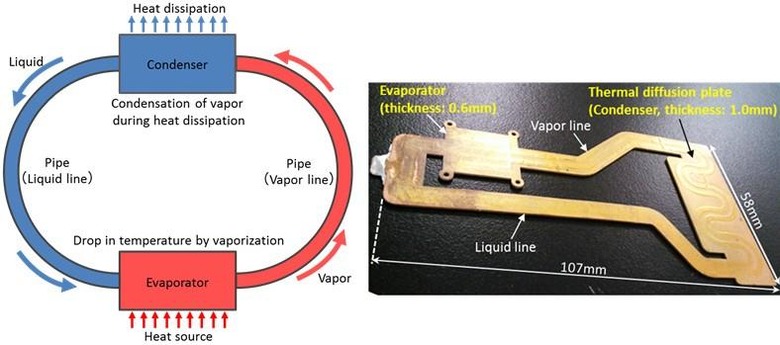What Mobile Heat Pipes Will Be Doing In Your Samsung Galaxy S7
If you're a hardcore DIY gaming PC maker, you've heard of the newest component rumored to be appearing in Samsung's smartphone hero for 2016: the Galaxy S7. Heat pipes, as they're called, allow you to cool your gaming PC with liquid – the coolness of the liquid runs through your computer and keeps your computer from overheating as said liquid runs through tubes. But what about a smartphone? You don't have nearly as much space within a Samsung smartphone as you do in a PC made for high-end gaming – so what's a manufacturer to do?
Details of the innards and outer look of the Samsung Galaxy S7 have been popping up for a few weeks, now. They suggest that the device will look largely the same, but will have abilities well beyond its predecessors. SEE: Why the Galaxy S7 will need liquid cooling
Inside the device, much like we've seen with recent Lumia devices, Samsung is said to be considering running Heat Pipes throughout the system.
Word is that Samsung is seeking out 0.6mm thin (or thinner) heat pipes, made to keep the system cool without adding a significant amount of bulk to the phone.
But what about battery life, you might wonder?
As another brand, Fujitsu, suggests in a recent report is that their solution requires no battery life whatsoever. The entire piping system's energy requirements are provided entirely by the heat it saps away from the phone.

A condensation of vapor takes place during heat dissipation, liquid travels from the condenser to the evaporator, and the heat source (your phone's processor, battery), send vapor through the pipe, and the process begins again.
A new feature on a phone that doesn't require additional battery life? Sign us up.
At this time, Fujitsu's solution doesn't quite reach what Samsung is looking for – they're up to 1mm thick at the thermal diffusion plate and just 0.6mm at the evaporator. Samsung wants to reach under 0.6mm, so says the tip.
Have a peek at our timeline of Samsung Galaxy S7 tips and rumors below. We're catching the whole lot.
